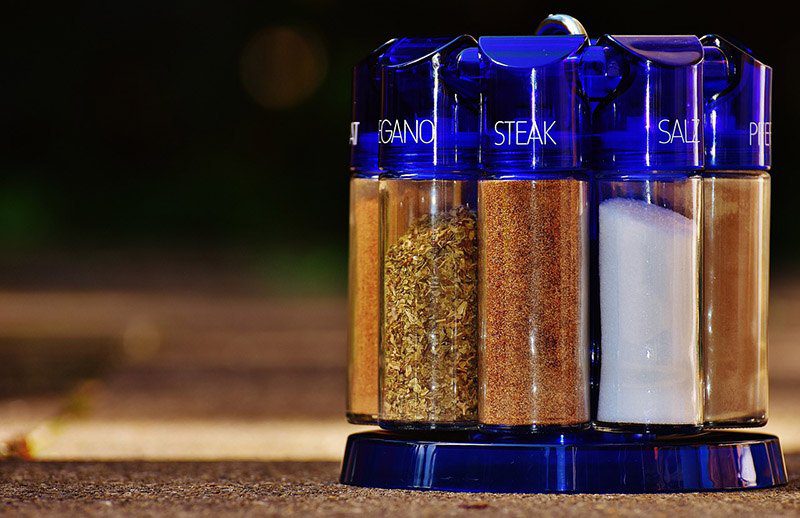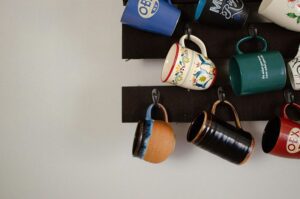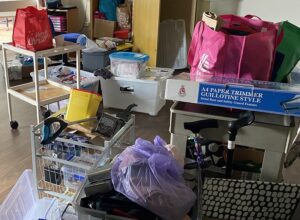
13 items professional organisers never buy – and neither should you
1. Souvenirs and ornaments
Trinkets with no purpose will become clutter in your home – and even more so in someone else’s. Take some nice photos instead. Or grab some tasty products you know will be consumed.
2. Unitaskers
Gadgets that only do one thing won’t earn the space they occupy. Staple removers, olive pitters, pie makers. They all add up to a lot of clutter, which paradoxically means that even if you REMEMBER you have an avocado slicer, you won’t be able to find it. And you’ll be reaching for a knife instead, which would have been fine in the first place.
3. Greeting cards
These put a mental and physical load on the recipient. A card costs money and energy, so the recipient wonders whether and how long to keep it, and whether and where to store it. A nice edible or drinkable treat with a message on the packaging via Sharpie leaves no burden. Spend your greeting card money on a chocolate bar.
4. Gift vouchers
This is controversial because they offer an alternative to potentially buying someone junk that they don’t want. The problem is that many recipients will forget, or find this burdensome. Especially if it’s a voucher they can’t use right away, in which case it becomes neglected and redundant at the back of a drawer. It’s a waste of money and opportunity, and cold hard cash would be far more versatile.
If you really want to gift someone an experience, schedule and do it with them. See it right through, and take the mental load off them. Now THAT’s a gift.
5. Vacuum bags
Professional organisers never buy these, because we have seen their failings. They seem like a good idea for storing winter woollies or occasional bedding, but they tend to work only once. After that one satisfying experience of beef jerky-fying your jumpers, the seals lose strength and they just become big plastic bags. Much better to declutter ruthlessly and use plastic tubs for anything out of season. Access will be easier this way, so that you can assess, add and retrieve easily, without swearing at the vacuum and the bags and wondering why they don’t work together any more.
6. Anything you don’t need in the very foreseeable future
This includes:
Craft supplies (are you about to start the project?)
Clothes (do they fit you and look good now?)
Aspirational (are you definitely ready to start the new hobby or sport?)
If you find yourself exclaiming “this MAY come in handy”, just no.
7. Power tools
Professional organisers never buy power tools unless it’s something we will need a lot. Renting means less clutter and zero maintenance.
8. Niche cleaning products
You don’t need a separate cleaner for every surface and object in your home. Most things can be achieved with a few basics – vinegar, eucalyptus oil, and a couple of hard-core products like Gumption (a personal fave) and bleach.
9. Plastic decanters for every kitchen product.
These take a lot of maintenance and unless you are super organised, the pantry will fill with containers of unrecognisable products and not a best-before date in sight. Is this gluten-free flour or regular flour or … um are those moths or mould?
10. Fabric hanging storage shelves
Some rare exceptions aside – e.g. if you have loads of hanging space and zero other options for shelving – these are saggy, ineffective and ugly. They also attract clutter, so professional organisers never buy these.
11. Mug trees
Mug trees are those wooden things that mugs hang off on benchtops. They can become dusty and greasy. That’s why kitchen cabinets were invented!
12. Pre-filled spice racks
Buy the spices you need when you need them, and not before. Not everyone needs Bush Spice seasoning. And similar to the mug tree point, this stuff does not need to be on display – put it in a cupboard or drawer.
13. Storage solutions in general
The only real solution is to declutter. Containers are rarely the answer. Look up clutter churning and ask yourself if that’s what you’re doing.






























